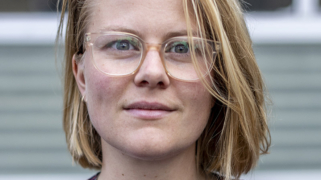Dear Teacher: copyright concerns you
Kennisland, as part of COMMUNIA, advocates for copyright reform that enables education, not stifles it. We started a series on the platform Medium++Medium blogRead the blog posts about copyright and education here. where we share blog posts on how we can -and should- arrange copyright around education in the 21st century. We will also write about practical tips and present movements that try to work around copyright restrictions and tap into the potential of educational innovation. Follow the publication copyright untangled for more. After the first post in the publication you can read below, the next text will be about envisioning a good exception to copyright for education in Europe. Please check in on Medium soon.
The days in which teachers walked into the classroom in the morning, opened a standardised textbook at the chapter they left of the day before, and instructed the students to continue on are soon behind us. Education techniques have changed, with education taking on multiple forms across the “life-long learning” spectrum. A ‘flipped classroom++Flipped classroomInstructional strategy and a type of blended learning that reverses the traditional educational arrangement by delivering instructional content, often online, outside of the classroom. Read more ’ is just one example, favored by many teachers. Instead of listening to lectures during class time, students view these pieces of instruction online at home, thus reserving classroom time for actively engaging with the subject matter. This setup also gives teachers the ability to better assist students who are having trouble with the material.
Instruction is moving more outside of the classroom, and with online teaching and learning becoming more prevalent, some of the legal safeguards in place to support educational activities are not yet up to speed with the practice of modern education. Even copyright aware teachers, who for example create open educational resources, struggle with copyright restrictions and uncertainty.
Which brings us to the title of this piece ‘why copyright concerns teachers’, well:
- Teachers want to be able to use the teaching materials they need;
If you want to screen a film outside the classic classroom (for an after school club for example) it is not clear if teacher can do that without explicit permission from the rightsholder. Even if it is clear that permission is necessary, it can be time consuming, expensive and confusing for a teacher to arrange a proper license.
- Teachers want to be able to share teaching materials with students;
We encourage teachers to teach in a more modern way, but if a teacher wants to share teaching materials he or she created, or projects their students created, it can can be very complicated to clear the rights of the material – and very easy to get sued.We encourage teachers to teach in a more modern way, but if a teacher wants to share teaching materials he or she created, or projects their students created, it can can be very complicated to clear the rights of the material – and very easy to get sued.
- Teachers want to be able to use the expertise of colleagues around the world.
Teachers learn from each other. Methods of teaching, teaching materials, or simply experiences. Sharing created materials can be a copyright nightmare, especially between countries. Even within the European Union there are so many differences in education exceptions and copyright a Belgian teacher cannot confidently share his or her materials with a Dutch colleague, without fear of infringing on copyright.
Now, these examples might seem pretty obvious, and teachers use existing materials and share them all the time. European copyright law, however, makes these three things very difficult, if not simply illegal. It also creates a huge sphere of uncertainty about what a teacher can, and cannot do while teaching. Copyright is something educators come in contact with daily. Pretty much everything found online is in-copyright, most teaching materials are in-copyright and almost everything teachers create themselves creates a layer of rights that restricts its sharing.
The three actions described above, using materials, sharing materials and using expertise from colleagues (when written down) is almost impossible to do legally, if one wants to be innovative and use modern communication tools.
There are ways, however, in which you can use in-copyright materials. One is to get permission from the rightsholder (initially the creator), this permission is usually given via licenses. You can get licenses through organisations called Collective Rights Management Organisations or through creators directly (sometimes using Creative Commons licenses). The second option of using in-copyright material is to follow the rules of exceptions and limitations that your jurisdiction has. Exceptions and Limitations, often shortened to E&L’s are what the name says they are: exceptions and limitations to the monopoly that is copyright. These vary a lot per jurisdiction (also within the European Union) but a common one is the exception of citation. You are allowed to prove a point by citing a small section of a copyrighted work, without asking prior permission. This is used by for example book reviews, citing the writing style as being poetic and giving three sentences to prove this.
Keep copyright out of the classroom
The issue with education exceptions is that is either unclear whether they apply to the digital world, or we know for sure that they do not.The issue with education exceptions is that is either unclear whether they apply to the digital world, or we know for sure that they do not. Which means that the liberty teachers have within the physical bricks of their classroom end once they mail students assignments, or want to use a newspaper article found online. This is something that will limit education in the online realm, because teachers have to actively consider paying license fees through organisations for their works, spend time finding reusable materials (Open Educational Resources) or not using materials they think they need to educate best. The last option being simply disregard the law and hope not to get sued.
This limitation put on education by the uncertainty in the law, different implementations of education exceptions across the EU and exceptions simply not being equipped to handle modern (online) education is unacceptable. We need to keep teachers educating, not trying to figure out the details of Intellectual Property Law. Keep copyright out of the classroom. We can achieve this by influencing the European Commission, who is reviewing the European Copyright system now, coming with a proposal at the end of the year.
What we need from copyright for teachers is a clear educational exception to copyright that is mandatory for all member states, with strict implementation guidelines so that it is the same across the board. This would include online uses for education.
Teachers, copyright concerns you because we are working with an outdated legal system that becomes less useful the more you want to be innovative in your teaching. It does not offer same freedoms online as it does for traditional, in-classroom uses. It is also unharmonised in the EU, let alone beyond – making international educational projects challenging and expensive. We need to keep copyright out of the classroom for this, and future, generations. The European Commission review of copyright only comes around once every decade or two. If we want a good copyright for education, we need to act now.





